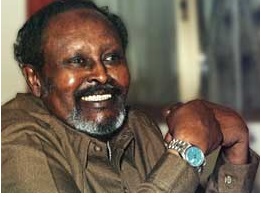By Muhumed M. Muhumed (Khadar)
Nations can experience a dramatic change and substantial development in several ways but changes driven by individual leaders are common and highly praised in today’s world. Visionary and transformative leaders like Erdogan, Kagame, Zenawi, Mahathir Mohamed, and Lee Yew, to mention a few, are often commended for their role in the development and changes their countries underwent in recent history. Apart from the normal leadership and personal traits, political will is a vital force which enables the leaders to realize more goals in a short period of time.

In its 27 years of existence, the Republic of Somaliland achieved relatively more in the first 14 years; from peace-building and reconciliation to state-building and democratization, Somaliland achievements in the first 12 to 14 years were remarkable not to mention that challenges were more harsh and unrelenting. Not only there were armed clashes between clan militias, extreme poverty, and countless refugees, but the major cities were in rubble and ruins.
President Mohamed Haji Ibrahim Egal, who came to power in 1993 when the Somali National Movement (SNM) transferred the power to civilian leadership peacefully in Borama, was the architect of these unprecedented changes. Given the hostile situation and limited opportunities in place, Egal’s transformative leadership permitted him to start the state-building efforts from almost nothing. As many argue, what facilitated Egal and his administrations to achieve more in a short period is his political will. Equally important are the achievements of his successor, Dahir Rayale Kahin, in his first years. To understand the power of political will, let us examine Egal’s achievements in democratization, elections in particular, in a few years.
Democratization process of Somaliland begins with the constitutional referendum of 31 May 2001. The constitution laid the foundation for a multi-party system and competitive elections. President Egal founded the first political party – UDUB – a few months later in August 2001, followed by others. The first Electoral Law was passed by the parliament in November 2001 and then, Election Management Body, Somaliland National Electoral Commission, was established in December 2001.
With all these requirements set, the first election, local council elections, was contested by six political associations; three of them qualified to political parties since the constitution permits only three national political parties. The local council elections took place in December 2002 and only five months later, a presidential election was held in April 2003. The plan was to hold the presidential and parliamentary elections at the same time but several challenges including the unexpected death of president Egal in May 2002 and the absence of parliamentary seat allocation formula made that plan impossible. The parliamentary elections were eventually held in September 2005 with an improvised seat allocation formula.
Between 2001 and 2005, a constitutional referendum and three elections took place in Somaliland. This was a historic achievement witnessed by the people of Somaliland as well as the international community with international observers present most of these events. At the time, there was no democracy in the Horn of Africa. Hence, we can now agree on that, although other factors contributed to this remarkable achievements, political will was the main factor behind all this.

On the contrary, Somaliland managed to hold three elections, a presidential election in 2010, local council elections in 2012, and another presidential election in 2017, since 2005. That is only three elections in 13 years compared to a constitutional referendum and three elections in just five years – 2001-2005. Election delays, elected term extensions and failure to hold elections on schedule became a popular norm in Somaliland in this 13 years. Notwithstanding with other minor factors, the absence of political will from the top leadership is the principal cause of all these failures. Democracy and democratization process dwindled while clannism and clan politics is on the rise. To mention the latest example, parliamentary and local council elections scheduled to take place in March 2019 has been postponed to an unspecified time in later 2019. To even add insult to injury, the House of Elders (Guurti) has not been reelected/reselected since 1997 while the House of Representatives has not been re-elected since 2005. Not only that but also the Guurti election/selection law and the parliamentary seat allocation formula are not yet in place. Moreover, other necessary reforms in electoral laws have not been carried out fully.
In a nutshell, political will is critical to nations’ developments and positive changes. This experience from Somaliland in Egal’s time and the early years of his successor (Rayale) is a perfect example. Apparently, what we are missing today in Somaliland is a political will from the top leadership. They seem careless and unconcerned; they are not taking advantage of the unlimited opportunities they have. Without political will, certain sectors may thrive but the whole nation cannot move forward at the same time.
Muhumed M. Muhumed (Khadar)
———-
Mr. Muhumed is the author of Kala-Maan: Bilowgii iyo Burburkii Wadahadallada Soomaalilaand iyo Soomaaliya. He is a researcher based in Hargeisa, Somaliland. He can be reached at email: [email protected]
We welcome the submission of all articles for possible publication on WardheerNews.com. WardheerNews will only consider articles sent exclusively. Please email your article today . Opinions expressed in this article are those of the author and do not necessarily reflect the views of WardheerNews.
WardheerNew’s tolerance platform is engaging with diversity of opinion, political ideology and self-expression. Tolerance is a necessary ingredient for creativity and civility.Tolerance fuels tenacity and audacity.
WardheerNews waxay tixgelin gaara siinaysaa maqaaladaha sida gaarka ah loogu soo diro ee aan lagu daabicin goobo kale. Maqaalkani wuxuu ka turjumayaa aragtida Qoraaga loomana fasiran karo tan WardheerNews.
Copyright © 2024 WardheerNews, All rights reserved


